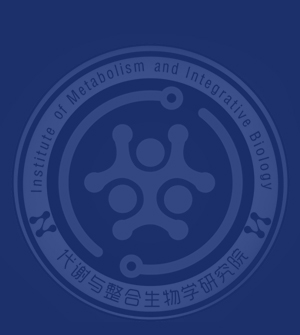

教授
电话:021-31246730
邮箱:stevenhou@fudan.edu.cn
地址:复旦大学生命科学学院A401-7室
个人简介
1983年获兰州大学化学学士学位,1986年获上海生物化学研究所硕士学位,1994年获美国芝加哥大学分子遗传与细胞生物学博士学位。此后在哈佛医学院Howard Hughes医学研究所从事博士后研究。1997-2019年在美国国家癌症研究所分别担任Tenure-track研究员,终身资深研究员和干细胞调控与动物衰老实验室主任。2020年起任职于复旦大学。
主要研究方向
干细胞、脂代谢与免疫应答在发育、肿瘤和神经退行性疾病中的相互作用。
干细胞是正常生物发育和衰老的中心细胞,是再生医学的关键资源。肿瘤干细(CSCs)存在于大多数肿瘤中,是导致肿瘤转移,疾病复发以及患者最终死亡的祸根。我们对干细胞的维持,质量调控和与外部环境间的信号传递所知甚少。在不久前发表于Nature上的论文中,我们发现干细胞(包括癌症干细胞)具有代谢独特性,就像冬眠动物,主要依赖于脂质储备的能量。阻断COPI/Arf1介导的脂质代谢能选择性地影响干细胞,导致脂滴积聚,代谢应激,功能缺陷(蛋白质聚集体)并最终坏死。近期发表于Nature Communications的论文中,我们在荷瘤小鼠中确定了详细的分子机制,阻断Arf1通路可以起到一石二鸟的效果:不仅能杀死CSCs,还会释放危险信号而改变肿瘤微环境并引发肿瘤特异性免疫反应,将死亡的CSCs转化为治疗性疫苗以吸引并激活免疫细胞来破坏大块肿瘤从而达到治疗的持久功效。在小鼠大脑中,阻断Arf1通路能激活小胶质细胞和免疫系统而导致神经退行性疾病。我们的研究系统为探索脂代谢,干细胞和免疫应答在发育和人类疾病中的相互作用提供了新的机会。我们正在一方面探索该系统的具体分子机制,另一方面又以该系统为基础来寻找治疗癌症和神经退行性疾病的新药物靶点。
荣誉及获奖情况
2017 美国国立卫生研究所科学突破团队奖
2009 美国国家癌症研究所所长创新奖
2006 关于肿瘤抑制基因BHD的研究被选为美国国家癌症研究所年度最佳成果
2001 美国国家癌症研究所研究员奖
2000 美国陆军乳腺癌研究奖
1997 Charles Harkin (查尔斯·哈金)癌症研究奖,美国
1995 美国白血病学会博士后奖学金
1994 美国NIH博士后奖学金奖
代表性成果
Wang G, Xu J, Zhao J, Yin W, Liu D, Chen W, Hou S X. Arf1-mediated Lipid Metabolism Sustains Cancer Stem Cells and Its ablation Induces Anti-tumor Immune Responses in Mice. Nat. Commun., 2020, 220. (Editors' Highlights)
Singh S R, Zeng X, Zhao J, Liu Y, Hou G, Liu H, Hou S X. The Lipolysis Pathway Sustains Normal and Transformed Stem Cells in Adult Drosophila. Nature, 2016, 538: 109-113.
Liu Y, Ge Q, Chan B, Liu H, Singh S R, Manley J, Lee J, Weidenman A M, Hou G, Hou S X. Whole-animal genome-wide RNAi screen identifies networks regulating male germline stem cells in Drosophila. Nat. Commun., 2016, 7: 12149.
Singh S R, Liu Y, Zhao J, Zeng X, Hou S X. The novel tumour suppressor Madm regulates stem cell competition in the Drosophila testis. Nat. Commun., 2016, 7: 10473.
Zeng X, Han L, Singh S R, Liu H, Neumüller R A, Yan D, Hu Y, Liu Y, Liu W, Lin X, Hou S X. Genome-Wide RNAi Screen Identifies Networks Involved in Intestinal Stem Cell Regulation in Drosophila. Cell Reports, 2015, 10: 1226-1238.
Zeng X, Hou S X. Enteroendocrine cells are generated from stem cells through a distinct progenitor in the adult Drosophila posterior midgut. Development, 2015, 142(4): 644-653.
Zeng X, Lin X, Hou S X. The Osa-containing SWI/SNF chromatin-remodeling complex regulates stem cell commitment in the adult Drosophila intestine. Development, 2013, 140(17): 3532-3540.
Zeng X, Hou S X. Broad relays hormone signals to regulate stem cell differentiation in Drosophila midgut during metamorphosis. Development, 2012, 139(21): 3917-3925.
Ande S, Orri K, Chen X, Coppola V, Tessarollo L, Keller J R, Hou S X. RapGEF2 is essential for embryonic hematopoiesis but dispensable for adult hematopoiesis. Blood, 2010, 116: 2921-2931.
Singh S R, Liu W, Hou S X. The adult Drosophila Malpiphian Tubules are maintained by multipotent stem cells. Cell Stem Cell, 2007, 1(2): 191-203.
Wang H, Singh S R, Zheng Z Y, Oh S W, Chen X, Edwards K, Hou S X. A Rap-GEF/Rap GTPase signaling controls stem cell maintenance through regulating adherens junction positioning and cell adhesion in Drosophila testis. Dev. Cell, 2006, 10: 117-126.
Chen X, Oh S W, Zheng Z, Chen H W, Shin H H, Hou S X. Cyclin D-Cdk4 and Cyclin E-Cdk2 regulate the JAK/STAT signal transduction pathway in Drosophila. Dev. Cell, 2003, 4: 179-190.
Chen H W, Chen X, Oh S W, Marrinissen M J, Gutkind J S, Hou S X. Mom identifies a receptor for the Drosophila JAK/STAT signal transduction pathway and encodes a protein distantly related to the mammalian cytokine receptor family. Genes Dev., 2002, 16: 388-398.
Hou S X, Goldstein E S, Perrimon N. Drosophila Jun relays the JNK signal transduction pathway to the DPP signal transduction pathway in regulating epithelial cell sheet movement. Genes Dev., 1997, 11:1728-1737.
Hou S X, Melnick M B, Perrimon N. Marelle acts downstream of the Drosophila Hop/JAK kinase and encodes a protein similar to the mammalian STATs. Cell, 1996, 84: 411-419.
Hou S X, Chou T B, Melnick M B, Perrimon N. The torso receptor tyrosine kinase activates raf in a Ras-independent pathway. Cell, 1995, 81: 63-71.




 复旦大学网上办事服务大厅
复旦大学网上办事服务大厅 复旦大学实验室安全教育与管理平台
复旦大学实验室安全教育与管理平台